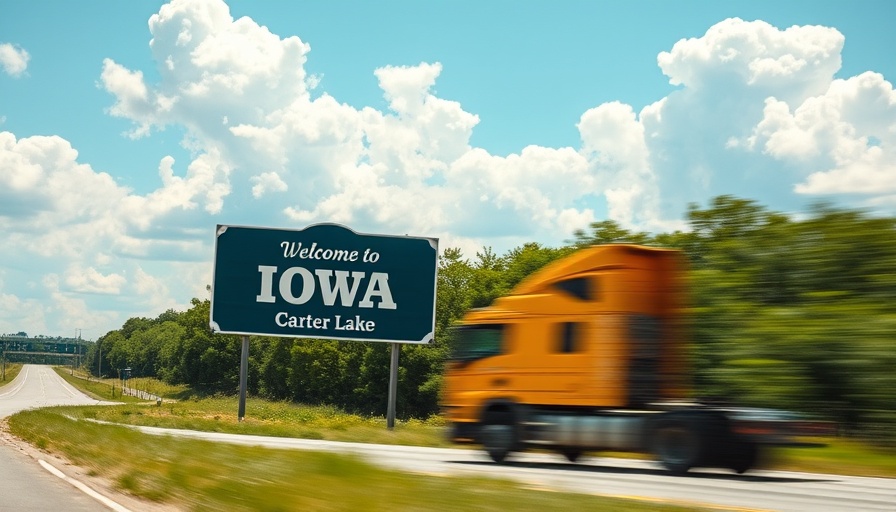
Discovering Carter Lake: An Iowan Oddity
Imagine driving through Omaha, heading towards Eppley Airfield, and suddenly finding yourself in Iowa. Carter Lake, a peculiar geographical feature, offers this surreal experience, marking the only city in Iowa located west of the Missouri River. But how did this oddity come to be?
The Formation: A Historical Perspective
Carter Lake wasn't always part of Iowa. The city owes its origins to a significant natural event in March 1877 when massive ice chunks jammed the Missouri River. This led to a catastrophic flood, which created a new river channel and crafted what is now a horseshoe-shaped lake. Initially referred to as Cut-Off Lake, the name was later changed in 1909 to honor Levi Carter, an influential Omaha industrialist.
Legal Battles: A Battle for Belonging
Initially caught in a dispute between Nebraska and Iowa, Carter Lake’s status became the subject of contention after the flood. The case “Nebraska v. Iowa” illuminated not only the geographical confusion but also highlighted a sports rivalry, as the states competed in their first football game that same year. Ultimately, the U.S. Supreme Court ruled in favor of Iowa, deciding that the land remained part of Iowa despite its physical separation.
The Community: A Unique Identity
Despite officially residing in Iowa, Carter Lake’s remote location resulted in its residents feeling more connected to Omaha, accessible predominantly by Omaha roads. In 1930, the residents chose to incorporate as a separate city, aiming for more local representation and public services. Yet the feeling of being marginalized lingered. Keebie Kessler, a former councilman, reminisces about the days when residents held Omaha ZIP codes, feeling they were often forgotten in discussions about community services.
The Importance of Carter Lake Today
Carter Lake stands as a testament to resilience amidst geographical and administrative challenges. It has adapted over the years, becoming a host for a blend of communities—from homeowners and renters to families and young professionals. As these residents navigate their unique identities, Carter Lake continues to foster a spirit of community that echoes its quirky beginnings.
Why Carter Lake Matters to Omaha and Beyond
The city’s situation raises questions around identity and belonging, particularly for families and young professionals working in Omaha but living in Carter Lake. Its unique status not only provides an everyday reminder of historical changes but also emphasizes how communities can thrive despite challenges. Modern living, including eco-conscious practices and smart home technologies, resonates with many Omaha families who are increasingly focused on creating connected, sustainable homes.
Conclusion: Embracing Community and History
Carter Lake’s charm lies in its uniqueness, blending historical significance with modern-day relevance. For homeowners and renters in Omaha, understanding the story of Carter Lake enriches their perspective on the regional landscape.
Explore your space, connect with your community, and appreciate the vibrancy of the Omaha metro area, including its hidden gems like Carter Lake. This city encapsulates the beauty of living between borders—historical, geographical, and communal.
 Add Row
Add Row  Add
Add 




Write A Comment